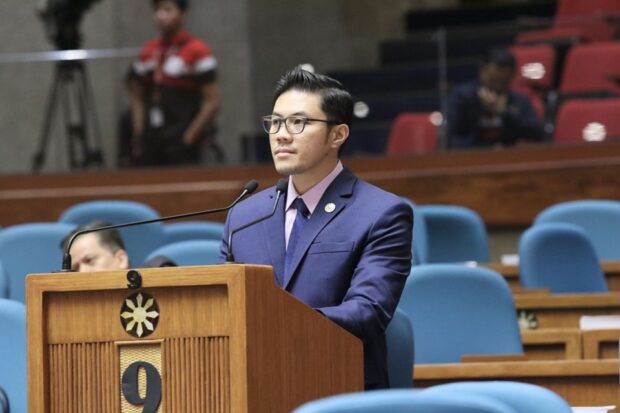
AnaKalusugan party-list Rep. Ray Reyes (Photo from his Facebook page)
MANILA, Philippines — AnaKalusugan party-list Rep. Ray Reyes is pushing to include the good conduct and ethical standards of public officials and employees in the elementary and high school curricula, which would enable students to effectively identify, resist, and fight corruption in government.
Reyes filed House Bill No. 9054, or the proposed “Anti-Graft and Corruption Education Act,” pointing out that the education of young minds should be “melded with the strengthening and ingraining of ethical behavior, moral character, honesty and fairness as human core values.”
He cited Transparency International’s 2022 corruption perception index, which ranked the Philippines 116th in its assessment of perceived levels of public sector corruption among 180 countries. The country has maintained a score of 33, in a scale of 0 for highly corrupt to 100 for very clean.
“The dearth of a strong moral foundation, aggravated by the lapses and loopholes in our laws and regulations, breeds corruption,” Reyes pointed out, adding that “preventing corruption is a crucial goal for any established government aiming to foster transparency, accountability, and sustainable development.”
READ: New book urges youth to prevent martial law sequel
According to the lawmaker, “in order to raise the awareness of our youth on the detrimental effects of corruption, it is high time to equip our students with the necessary knowledge, skills, and values to resist and combat corruption.”
He maintained, “Nothing less than the intensive absorption of ethical values, through the integration of antigraft and corruption modules into the curricula of basic educational system can stem the continuing dominance of the culture of corruption in the Philippines today.”
READ: Nat’l youth science festival starts
HB 9054 tasks the Department of Education to work with the Office of the Ombudsman in developing modules of instruction for elementary and high school students relating to the concept, effects, and prevention of graft and corruption.
The modules, the draft law provides, should include Republic Act No. 6713 or the Code of Conduct and Ethical Standards for Public Officials and Employees; RA 3019 or the Anti-Graft and Corrupt Practices Act; the functional and structural organization of the Office of the Ombudsman; rules and regulations on disciplinary actions of the Civil Service Commission; and school activities pertaining to the integrity, transparency and accountability programs of the Ombudsman’s national integrity center.